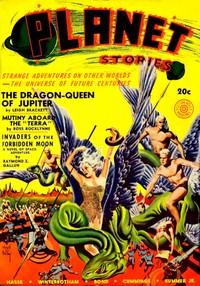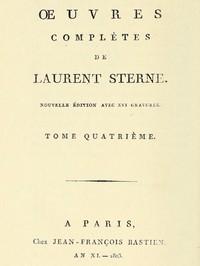Read this ebook for free! No credit card needed, absolutely nothing to pay.
Words: 59632 in 11 pages
This is an ebook sharing website. You can read the uploaded ebooks for free here. No credit cards needed, nothing to pay. If you want to own a digital copy of the ebook, or want to read offline with your favorite ebook-reader, then you can choose to buy and download the ebook.
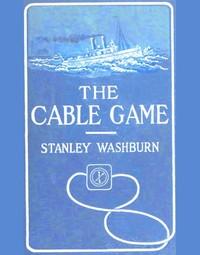

: The Cable Game The Adventures of an American Press-Boat in Turkish Waters During the Russian Revolution by Washburn Stanley - Russia History Nicholas II 1894-1917; Black Sea Description and travel
PAGE From far Mongolia's borders for 180 miles eastward stretches the line of the Japanese trenches 20
Regiment after regiment, fresh from Japan, pour along the newly made highways 20
With clanking chains and creaking limbers, batteries are going to the front 48
In eighteen months' association with the army, we have not seen such activity 48
Sulina--the mouth of the Danube River 92
General Nogi--than whom no finer gentleman ever drew the breath of life 198
Morris inspecting our Christmas dinner 198
For three days we had been congratulating ourselves that we were on the eve of the greatest battle in history. Around us in silent might, two armies slept on their arms. From the border of far Mongolia for a hundred and eighty miles eastward lay the line of the Japanese trenches, and for forty miles deep every Manchu hut and village sheltered the soldier or coolie patriot of the Island Emperor. Above the roads for endless miles hung the heavy powdered dust of Mongol soil; like a mist unstirred by any wind, it rose from the plodding of the feet of limitless thousands of men and animals, pushing forward for the last great struggle of a mighty conflict. Regiment after regiment fresh from home, poured along the Japanese made arteries, for the blood of an army corps. Now and again the khaki colored battalions at the command of an officer halted at the side of the road while a battery of artillery, with clanking chains and creaking limbers, trotted through the thickening clouds of dust that settled on one like flour. Cavalry, red cross, transport, coolies, bridge trains and telegraph corps gave place the one to the other in rapid succession. In eighteen months' association with the Japanese we had not seen such activity. "The Peace Conference at Portsmouth has failed" we told ourselves, and leaving the extreme front of the army, where we had been visiting the cavalry outposts, we turned our horses' heads for the thirty-mile ride to the headquarters of General Nogi, to which we had been attached since May. All our talk was of the coming of the great battle and of the preparations which we must make for a three weeks' campaign in the saddle, and more important still, how we should arrange an open line of communications from the ever-changing front of the prospective struggle to the cable office in the rear.
Covered with dust an eighth of an inch deep, we rode into Fakumen, our headquarters, late on the afternoon of September 4th. At the door of a Chinese bean mill, where for four weary months we had been awaiting the call to action, stood a Japanese orderly. As we dismounted, he saluted and respectfully handed me one of the Japanese charactered envelopes of the Military field telegraph. Turning my horse over to my Japanese boy I opened it, and read the word "Return."
That night I handed in at the Chinese mudhouse, where the telegraph ticked cheerfully over the hundreds of miles of Manchurian plains and Korean mountains to Fusan, and thence by cable to Nagasaki and the civilized world, a short dispatch to my office in Chicago, "Leaving the front immediately. Wire instructions Peking." Two days later at sunrise we took our leave. I shall not soon forget our leave-taking from the army whose fortunes we had followed off and on for nearly eighteen months. So many of the correspondents left the "front" with such bitter feelings toward their erstwhile hosts that, in justice to the Japanese, it is but fair to chronicle that in one Army of the Mikado at least the relations between the staff and the soldiers of the press were anything but unpleasant, and that we, who left the Third Army that September morning, left with only the tenderest affection toward the commander under whose shadow we had lived, slept and thought these many months--that is General Baron Nogi--than whom no finer gentleman, ardent patriot and gentle friend ever drew the breath of life. The night before our departure the general entertained us at a farewell banquet and in a kindly little toast bade us god-speed on our journey. That night we shook the hands of all the staff whom we had known so well, and went to our quarters thinking that we had seen them for the last time, for we were to leave at daybreak for the long ride to the railroad. The next morning as we were mounting our horses to begin our journey an orderly from headquarters rode up and said that Major General Ichinohe had requested that we stop at headquarters on our way out of town. So it was that accompanied by the small cavalry escort that had been detailed to see us to the railroad, we rode into the compound where Nogi and his staff had lived that last long summer of the war.
Mounted on a coal black horse in full dress uniform, with half a dozen of his staff about him, sat old Ichinohe, a tall, gaunt man nearing sixty, whose life typifies the ideal of Japanese chivalry. Spartan in his simplicity and endurance, fearless as a lion in battle, and gentle as a woman in time of peace, we had known him almost since the war started. At Port Arthur he had commanded the Sixth Brigade of the Ninth Division, which, more than any other, had borne the heat and burden of the day. We had known him then, when sword in hand he had led in person his brigade against one of the most impregnable redoubts on the crest of that all but unconquerable fortress. Twice his column had been thrown back shattered and bleeding, but on the third assault, and just as the light of day was breaking in the East, this redoubtable man covered with blood and powder, and with his broken sword clutched in his hand, placed the Sun Flag on a position that the Russians had regarded as beyond possibility of capture. It was impossible to realize that this kindly old gentleman, who spoke so gently to us that morning in distant Manchuria, was the desperate commander who had been decorated by the Mikado for his invincible attack on the famous redoubt before Port Arthur's bloody trenches.
He met us with that smile which we had come to know and love, and bade his interpreter tell us that he and his staff would ride with us out of the town and see us started on our journey. So, with the staff riding about us, with clatter of saber and ring of spur, we rode through the old winding stonewall flanked street of Fakumen to the main gate of the town. Here the road winds out over a bridge that crosses the little river that wends its way down from the pass in the mountains three miles beyond and through which led our way that morning. The sun had just risen and its first copper-colored rays turned the dew on the grass to drops of brilliants. Away and away stretched the Oriental landscape with the hills standing out in the background in the clear, crisp air of early autumn. Behind us lay the town which had been our home since May, its strange, fantastic Chinese temples and maze of jumbled dwellings just catching the early sunlight; the whole scene might have been a setting snatched from the banks of the Jordan in the far away Holy Land. As we rode out of the gate and onto the old wooden bridge with its stone parapets the full strength of the Third Army Corps Military band blazed out the first notes of Sousa's "The Stars and the Stripes," and with the glorious swing of that martial strain taken up by drum and trumpet we crossed the river. None who has never lived for months in an alien land among a people of a different race can ever realize the throb of the heart that such music inspires. To us, in far off Mongolia, it sounded like a voice from our very own, coming across the wide Pacific.
Free books android app tbrJar TBR JAR Read Free books online gutenberg
More posts by @FreeBooks

: Behind the veil at the Russian court by Radziwill Catherine Princess - Russia History Alexander III 1881-1894; Russia History Nicholas II 1894-1917; Russia Court and courtiers; Russia History Alexander II 1855-1881
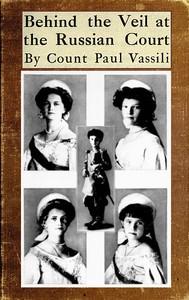

: Ricordi d'infanzia e di scuola seguìti da Bambole e marionette Gente minima Piccoli studenti Adolescenti Due di spade e due di cuori by De Amicis Edmondo - De Amicis Edmondo 1846-1908 IT Biografie
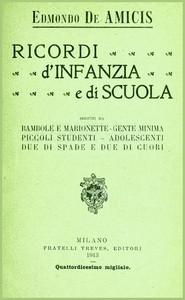

: World of Mockery by Moskowitz Sam Lynch Don Artist Illustrator - Science fiction; Short stories; Human-alien encounters Fiction; Castaways Fiction; Ganymede (Satellite) Fiction
